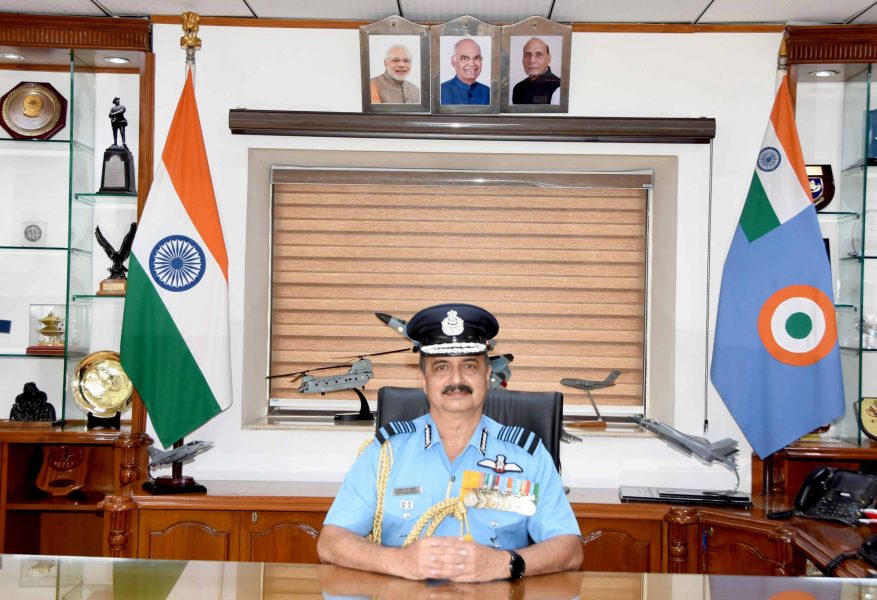
Balakot showed air power can be effectively used in 'no war, no peace' scenario: IAF chief

Air Chief Marshal VR Chaudhari on Tuesday highlighted the critical importance of India’s air power considering the nature of its adversaries and said the Balakot operations of 2019 demonstrated its effectiveness even in a no war, no peace scenario and under a “nuclear overhang”.
Addressing a seminar on ‘Aerospace Power: Pivot to Future Battlespace Operations’ in New Delhi, the Chief of Air Staff said air power has become an option of choice due to “inherent flexibility” and “unmatched” precision strike capability. “Operations like Balakot have also demonstrated that given the political will, aerospace power can be effectively used in a no war, no peace scenario, under a nuclear overhang without escalating into a full blown conflict,” he said.
Also read: Aero India 2023: IAF displays home-grown Vayulink platform with multiple uses
More response options
“This is very important given the nature of our adversaries. The response options available to the leadership have suddenly increased and increasingly, air power has become an option of choice due to inherent flexibility and unmatched precision strike capability,” he said.
India’s war planes pounded a Jaish-e-Mohammed terrorist training camp in Balakot in Pakistan in February 2019 in response to the Pulwama terror attack in which 40 CRPF personnel were killed.
“India’s security concerns necessitate that it puts in place adequate military power that has the ability to achieve deterrence, ensure information dominance, coerce when needed and provide multiple response options,” Air Chief Marshal Chaudhari said.
“Attributes of aerospace power enable the leadership to formulate an appropriate strategy with due cognizance given to the desired end state, conflict termination criteria and escalation matrix,” he said.
Air power critical
The IAF chief said that considering the advantages that the aerospace power offers, it will become a crucial factor in future battlespace operations. Air Chief Marshal Chaudhari said there is a need to harness technology including the CMOS (complementary metal oxide semiconductors) sensors, Artificial Intelligence enabled decision support matrix and manned-unmanned teaming. He said next generation fighter aircraft will prove to be a deciding factor when fighting “tomorrow’s wars”.
Also read: Avani Chaturvedi to be IAF’s first woman fighter pilot to join war games abroad
“One aspect that deserves a special mention is the humans in the chain. Any amount of automation will not be effective unless we have well-trained, situationally-aware and technologically sound professionals handling our systems,” the IAF Chief said. “To see first and see clearly, to reach first and reach farthest and to strike first and strike with precision will be the mantra for fighting modern wars,” he added.
The Air Chief Marshal said battlespace transparency, enhanced rapid mobility and pin point precision capability will be the key to success and India’s capability development plans must address these issues.
“If the world is increasingly becoming volatile, uncertain, complex and ambiguous, it is high time that we develop counters,” he said. “We must evolve to counter the volatile with stability and calmness that comes from good strategy formulation and training in an environment of denial,” he said.
(With Agency inputs)


